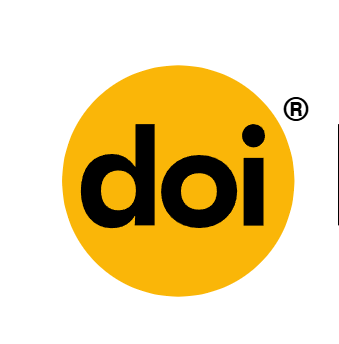The dialectical relationship between oil rents and democratic transition
DOI:
https://doi.org/10.64184/ajlps.V2.I3.Y2025.P899-925.151Keywords:
Democratic Transition, Quarter, Oil QuarterAbstract
Oil rents marked a turning point in the economies of oil-producing countries, transforming them from primitive economies to economies with financial abundance. This wealth contributed significantly to improving the living conditions of the people of these countries. At the same time, this financial abundance strengthened the power of the ruling political elites by providing financial gains to various segments of society, thus ensuring loyalty to the government among a broad segment of beneficiaries who fear the regime. On their economic interests in the event that the political system is exposed to any internal or external challenge, therefore the idea of democratic transformation in renter countries faced challenges represented by the weakness of popular resentment against the political systems in these countries, the source of which is usually the poor living conditions of the population and the accumulation of tax burdens. Because of the success of these regimes in employing these huge financial resources by the ruling elites to confront any attempt at a genuine transition to democracy, using methods of intimidation at times and enticement at other times, against any real political opposition.
References
First: Books:
1- George Corm, A Critique of the Arab Rentier Economy, Center for Arab Unity Studies, Beirut, 2011.
2- Siham Ahmed Rashid, The Impact of the Rentier Economy on Comprehensive Development in Iraq (2010-2020), Al-Mustansiriya Center for Arab and International Studies, 2023.
3- Karim Mahdi Al-Hasnawi, Principles of Economics, Al-Sanhouri Library, Baghdad, 2015.
4- Michael Clare, Wars over Resources: The New Geographical Context of International Conflicts, translated by Adnan Hassan, Dar Al-Kitab Al-Arabi, Beirut, 2002.
5- Michael Ross, The Political Economy of the Resource Curse: A Critique and Analysis of the Oil Literature, a study in the book *Oil and Tyranny: The Political Economy of the Rentier State*, 1st ed., translated by the Institute of Strategic Studies, Baghdad, 2007.
6- Terry Lynn Karl, *The Perils of the Oil State: Reflections on the Paradox of Plenty*, translated by Abdul-Ilah Al-Naimi, Iraqi Studies, Baghdad, 2008.
7- Saleh Yasser, The Rentier System and the Building of Democracy: The Impossible Duality (The Case of Iraq), Friedrich Ebert Foundation, Jordan and Iraq Office, Iraq, 2013.
8- Michael Ross, The Curse of Oil: How Oil Wealth Shapes the Organization of Nations, translated by Muhammad Haytham Nashawati, Arab International Relations Forum, Doha, 2014.
9- Peter Kaznacheff, Resource Rent and Economic Growth, translated by Ali Al-Haris, Arab Scientific Center for Human Studies and Research, Rabat, 2019.
Second: Periodicals:
1- Kamel Alawi Al-Fatlawi and Muhammad Hussein Al-Jubouri, The Problematic Relationship between the Rentier Economy and the Rentier State, Journal of Administration and Economics, University of Kufa, Issue 5, 2013.
2- Amer Jamil Abdul Hussein, The Problematic Contradiction Between Oil Rents and Sustainable Development in Iraq, Al-Ghari Journal of Economic and Administrative Sciences, Issue No. 40, 2016.
3- Adnan Al-Janabi, Getting Rid of the Rentier State, Iraqi Studies, Baghdad, 2015.
4- Al-Naami Al-Sayeh Al-Alam, Democratic Transition: Concept and Mechanisms, Journal of the Academy for Humanities and Social Sciences, Issue No. 21, July 2017.
5- Ahmed Karboush, The Problem of Democratic Transition: A Theoretical Study, Journal of Legal and Economic Research, Algeria, Issue No. 1, 2023.
6- Ali Misbah Muhammad Al-Wahishi, A Theoretical Study of Democratic Transition, Journal of the College of Economics for Scientific Research, University of Zawiya, Volume 1, Issue No. (2), October 2015.
7- Ziad Jihad Hamad, Factors Influencing Democratic Transition, Madad Al-Adab Journal, College of Law and Political Science, Al-Mustansiriya University, Issue No. 14, 2018.
8- Salah Nouri Abdul Hassan, The Dialectical Relationship between Democratic Transition in Iraq and the Rentier Economy, Journal of Middle East Research, Issue No. 54, Baghdad. 2020.
9- Jabbar Ismail Abdul, The Impact of the Economic Factor on the Democratic Transition Process in Iraq after 2003, International Politics Journal, University of Baghdad, 2023, Issue 51, April.
10- Muhammad Al-Ahmari, Democracy: Roots and the Problem of Implementation, Arab Network for Research and Publishing, Beirut, 2012.
11- Dahman Abdel Haq, The Role of Oil in Shaping the Political Structure of the Gulf Kingdoms, Algerian Journal of Public Policy, Algeria, Issue 5, 2014.
12- Abdul Ali Kazim Al-Maamouri and Basma Majid Hamza, Oil Rent and Democracy: Open Borders for Conflict, Hammurabi Journal of Strategic Research and Studies, Baghdad, Issue 7, 2013.
13- Salam Jabbar Hashim, The Rentier State and the Formation of Regional Systems (The Gulf States as a Model), Political and International Journal, Issue 21, Al-Mustansiriya University, Baghdad, 2012.
14- Abdul Jabbar Ahmed Abdullah and Kazim Ali Mahdi, The Impact of the Rentier State on the Democratic Choice in Iraq after 2003, Journal of Political Science, College of Political Science, University of Baghdad, Issue 1 50, 2015.
Third: Internet:
1- World Bank Group data at the following link:
https://www.albankaldawli.org/ext/ar/home
-2- The Economist Intelligence Unit, Democracy Index 2024 https://www.eiu.com/n/campaigns/democracy-index-2024
Downloads
Published
Issue
Section
License
The authors retain Full copyright of their published article
Ashur Journal of Legal and Political Sciences applies the Creative Commons Attribution 4.0 International (CC BY 4.0) License to articles and other works we publish. If you submit your paper for publication by AJLPS, you agree to have the CC BY 4.0 license applied to your work.
Articles can be read and shared for under the following conditions:
BY: Attribution must be given to the original source (Attribution)
Full details available at
https://creativecommons.org/licenses/by/4.0/






